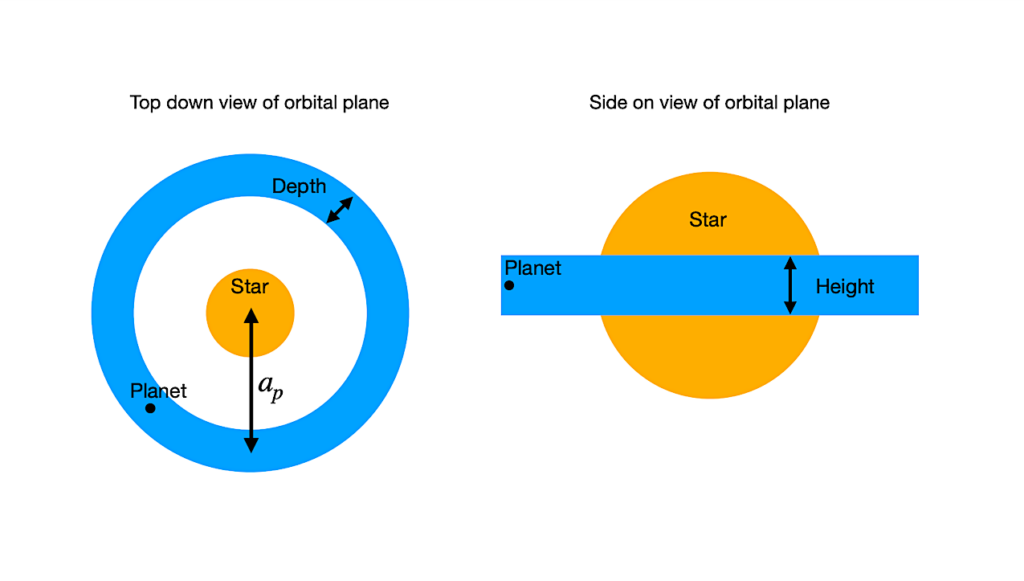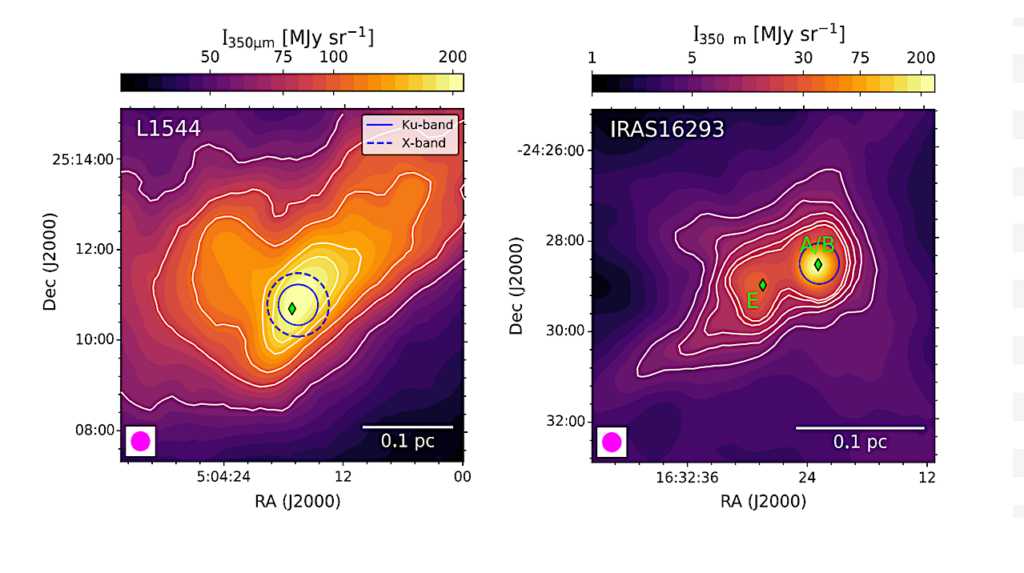A Scatter of Light from a Polarized World

Many known exoplanets harbor clouds, which lead to degeneracies in spectroscopic models between particle composition and size. Polarimetry, however, provides independent assessment.
Here we report the 7.2σ discovery of linearly polarized, scattered light from the hot Jupiter HD 189733b in B band (390 to 475 nm) peaking near quarter phase with Δp=40.9±7.1 ppm. Polarization measurements, obtained with the POLISH2 polarimeter at both Gemini North and the Lick Observatory 3-m, are best explained by silicate (SiO2 or MgSiO3) particles with effective radius reff=0.038+0.047−0.023 μm (90% confidence).
This is broadly consistent with results from both Hubble transmission spectroscopy and JWST secondary eclipse spectroscopy suggesting small, SiO2 scattering particles. It is difficult to reconcile large polarization and moderate Hubble secondary eclipse depth via pure Rayleigh, silicate, or MnS scatterers. The measured polarization of HD 189733b is detected with such high confidence that we place a 2σ lower limit on its B band geometric albedo of Ag>0.26 with a preferred value of Ag=0.6.
This is larger than the prior estimate of Ag=0.226±0.091 from Hubble secondary eclipse photometry, and it presents HD 189733b as one of the most reflective known exoplanets in B band. It also validates Rayleigh scattering from the exoplanet, as opposed to starspot contamination, as the cause of HD 189733’s blue optical slope in transmission spectroscopy. Assuming other known exoplanets harbor atmospheres like HD 189733b, we model dozens to be detectable with at least 5σ confidence after one week of Gemini time each.
Sloane J. Wiktorowicz, Pushkar Kopparla, Jiazheng Li, Yuk L. Yung
Comments: 26 pages, 22 figures, accepted by AJ
Subjects: Earth and Planetary Astrophysics (astro-ph.EP)
Cite as: arXiv:2509.19172 [astro-ph.EP] (or arXiv:2509.19172v1 [astro-ph.EP] for this version)
https://doi.org/10.48550/arXiv.2509.19172
Focus to learn more
Submission history
From: Sloane Wiktorowicz
[v1] Tue, 23 Sep 2025 15:46:20 UTC (2,241 KB)
https://arxiv.org/abs/2509.19172
Astrobiology,








